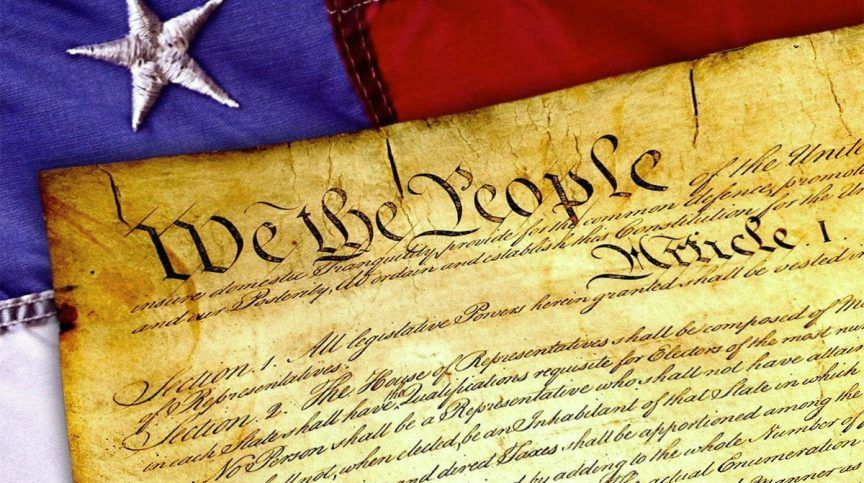“My heart is being torn apart; I cannot take this anymore. Our tiny children are being burnt alive, our women are being raped and after that they are all locked in a room and they set the entire house on fire. What if they put every single one of us in a place and kill us all? Yet, we have nowhere to go. They call us Bengalis and Bengalis call us Burmese. Who are we? Have we suddenly emerged from the earth or have we been pulled out from the sky?”
Imam Ali Ahmmad of Khalek bin Ali Mosque, in Kulupalong, Bangladesh, broke down while being interviewed for a Channel 4 documentary, “A boy with no name for people with no identity,” published on September 18, 2017. No wonder — how horrific is the sight, to see your loved ones being persecuted and tortured in front of you and the only choice you have is to watch with helplessness. These cries are not one but many, each telling a tale of misery, separation, and hurt. They are called the Palestinians of Asia, the Rohingya Muslims of Rakhine State in western Myanmar, and they are facing an epic humanitarian crisis, caused by their own government and military. (Myanmar is the new name for Burma, changed by the ruling military junta in 1989; Myanmar is the name that will be used throughout this article.)
The History and Background
The historical name for the Muslim Arakanese is “Rohingya.” The term Rohingya was derived from Rohang, the old name for the Rakhine State of Myanmar. The Rohingyas are a Sunni Muslim community that make up one-third of the Rakhine State population. They mostly live in Maungdaw and Buthidaung townships in the Rakhine State, along the border with Bangladesh. There are two conflicting theories about the Rohingya origins as an ethnic group in Myanmar. Most political organizations, scholars of the Rohingya, and even many experts from outside Myanmar subscribe to the theory which suggests that between 9th and the 15th centuries many Mughal, Turk, Arab, Persian, and Bengali traders, soldiers, and immigrants arrived in that region. They married and settled there, and their descendants are the Rohingyas of today, living in the region for centuries. On the other hand, the Myanmar government and the Buddhist population across the country are staunch believers of the second theory which suggests that Rohingyas are illegal Bengali immigrants who arrived and settled in the region during the British colonial period of 1824-1948. The government thus denies their status as Myanmar citizens and has been denying them their basic human rights. A hatred for the Rohingya Muslim community is instilled in the Myanmar public purposefully by the government, done to gain political popularity and support in elections by the majority non-Muslim population. Such anti-Muslim policies and propaganda have forced the disliked Rohingyas to suffer horrendous living conditions.
The 1974 Emergency Immigration Act and the 1982 Burmese Citizenship Law were the two key acts of legislation imposed by the government to dismantle the rights of Rohingyas. In compliance with the first legislation, all citizens were issued National Registration Cards as their proof of national identity. Since the Rohingyas were denied citizenship, they were not eligible to have these cards. Instead they were given Foreign Registration Cards which limited their employment and educational opportunities. And these cards were issued to a limited number of Rohingyas. The 1982 Citizenship Law was the last nail in the coffin, and whatever limited rights of citizenship the Rohingya were enjoying until then, they were completely abolished. Three tiers of citizenship were created under this act and the Rohingyas were excluded from all tiers, effectively rendering them stateless. The government defended its stance by asserting that the Rohingyas are illegal Bangladeshi immigrants, and thus, they could not be included in the 135 official ethnic groups of the nation. Since the changes established by the 1974 Emergency Immigration Act, the Rohingya have been subjected to abuses by government security forces including “mass killings, sexual violence, and widespread arson,” according to Human Rights Watch, abuses which “amount to crimes against humanity.”
In 2012, conflict and violence between Rohingyas and the Buddhist majority in Rakhine State led to religious riots, costing 200-plus lives and creating roughly 140,000 homeless persons. In the same year, the Rakhine police force opened fire at a public protest where the Rohingyas were demanding the police release the body of a fellow Muslim. The attempt of Rohingyas to fight back in defense of their lives and property is characterized as Muslim extremist and terrorist activity. This is meant to deter the international community from taking action to help the Rohingya and to conceal the atrocities committed by Myanmar. The protests and demonstrations against these atrocities by Muslims across the world, and condemnation by the international community, have yet to restrain the Myanmar government.
In 2014, the government conducted its first census in 30 years and forced Rohingyas to register as Bengalis instead of Rohingyas. In 2015, the Rohingyas’ right to vote was revoked and Muslim candidates were banned from running in the elections. Human Rights Watch views the actions taken by the Myanmar government to be “a campaign of ethnic cleansing” and the “restrictions on movement and lack of access to basic health care have led to dire humanitarian conditions.”
Forced Displacement and Hope for Relief and Rehabilitation
The reprehensible persecution by the Myanmar government and military, along with extremely appalling living conditions, have forced the Rohingyas to leave their country and migrate to Bangladesh and other neighboring countries. The forced displacement, that has resulted in the loss of thousands of lives, has been taking place since the late 1970s and continues to date. The influx of Rohingya Muslims has affected the bordering Southeast Asian countries, especially Bangladesh, Thailand, Malaysia, and Indonesia. While there have been efforts to prevent the migrants from crossing the borders, a large number of refugees have entered these countries, through legal or illegal ways, trying to save their lives. The international community, aware of the increasing humanitarian crisis, since 2015, has been pressuring nearby countries to be more empathetic and proactive with regard to the suffering refugees.
Most Rohingya refugees cross the border between Rakhine State and Bangladesh in their quest to escape the persecution. According to the U.N. agency, the High Commissioner for Refugees (UNHCR), more than 723,000 Rohingya refugees have migrated to Kutupalong and Nayapara in southern Cox’s Bazar, Bangladesh since August 2017. While many refugees are living in registered camps, a large number of them are residing in unofficial camps and nearby villages where they do not receive any humanitarian aid and are also at risk of deportation. Bangladesh is a small, densely populated country with approximately 163 million people. Despite its limited resources, Bangladesh has been responsive and accommodating of refugees. The Prime Minister of Bangladesh, Sheikh Hasina Wajid, has played an immense role in facilitating support for them. She has made bold decisions by opening up borders and has provided extensive support to the international organizations in the relief and rehabilitation process. Many groups and agencies, including the U.N., various NGOs, and humanitarian relief groups are working tirelessly to provide health, hygiene, and settlement services in the refugee camps. However, due to the rising influx of refugees, organizations face the challenge of insufficient resources and can offer limited relief, given the vast numbers. The Bangladesh government has allotted 3000 acres of land to build housing projects for refugees. The refugees occupying the Cox Bazar district are now double that of the local population. The challenges faced by the relief and rehabilitation groups and the government are rising commodity prices, outbreak of diseases, damage to rice paddies, and increasing criminal activity. The leakage from latrines is causing contamination of ground water, increasing the risk of spreading infectious and water-borne diseases.
Many of the refugees flee by boat from Bangladesh to other neighboring countries in the region. According to the U.N., almost 80,000 Rohingya refugees have moved to Malaysia since October 2018, and many more are living unregistered. With no legal status and no ability to work, their families are living in a vulnerable state with no education or healthcare services available to them. Refugees who have fled to Thailand and Indonesia face the same living conditions.
The repatriation of thousands of refugees was planned by Myanmar and Bangladesh in November 2017 through a signed deal. However, it has been delayed repeatedly throughout 2018. The Rohingyas, however, are fearful to return to Myanmar, demanding guaranteed protection for their lives and property.
Humanitarian Relief for Refugees
In the midst of the Rohingya crisis, many organizations are striving to help the refugees in Bangladesh, and the displaced persons in Myanmar. However, most of the relief work is being done in the camps of Bangladesh since the Myanmar government has put a lot of restrictions on international NGOs in most of its states. The camps and shelters in Cox’s Bazar are mainly managed by the United Nation’s International Organization for Migration, which provides for sanitation, healthcare services, and programs to protect and support females and children vulnerable to human trafficking. UNICEF’s children and women protection program are also dedicated to providing food, water, and shelter to the refugees. Besides clean water distribution daily, they are also planning to establish in the camps permanent water sources such as water pumps and deep tube wells. A plan to vaccinate 150,000 children against measles, rubella, and polio has also been announced by UNICEF. The U.N. World Food Program is addressing the food shortage issue in Bangladesh by providing rice and nutritional powder at subsidized rates. Supplements and therapeutic nutrition are being given to malnourished children and adult refugees.
Action Against Hunger is also providing food and water since 2007. Refugees who suffer from stress and trauma are also supported by their competent team of mental health counselors. Save the Children is an organization that is helping Rohingya children since 1970, especially those who were separated from their families. Their 1,400 dedicated staff members and volunteers have been working tirelessly to provide tents and cooking and hygiene supplies to families in the Bangladesh camps. Since 1985, Doctors Without Borders has been working in Bangladesh treating illnesses like diarrhea, severe dehydration, and sexual and physical violence injuries. The International Rescue Committee is one of the few organizations which operates in Rakhine State to provide medical care and emergency relief to the local Rohingyas there. The refugee agency UNHCR has been operating both in Bangladesh and Myanmar. The agency provides shelters and other emergency supplies but is also working on the rehabilitation of those who have been most affected, children and the elderly, as well as rape and trauma survivors.
International Intervention and Support
The diplomatic relationship of Myanmar with the Western world has greatly improved after the political and economic reforms of 2010. Many sanctions on the country have been lifted. The U.S. and the European Union have put pressure on the Myanmar government to end the persecution and abuses of the Rohingya Muslims. Under this international pressure, some improvements have been made. However, a lot more needs to be done, both by Myanmar, the neighboring countries, and the international community. Most recently, on behalf of the Organization of Islamic Cooperation, Gambia has filed a genocide case in the International Court of Justice against Myanmar for their atrocities. According to Associated Press, Gambia’s Justice Minister and Attorney General, Abubacarr Marie Tambadou, when filling the case said, “We want to send a clear message to Myanmar and to the rest of the international community that the world must not stand by and do nothing in the face of terrible atrocities that are occurring around us. It is a shame for our generation that we do nothing while genocide is unfolding right before our own eyes.” Public hearings of the case were held in December in a court based in the Netherlands. Aung San Suu Kyi, the Myanmar leader, is heading its legal team which will contest the case and deny all allegations of human rights abuse against the Rohingya
Conclusion
The relief work that is being done is commendable, but a long-term political solution is needed. Since the government of Myanmar has not made substantial changes and reforms, it is necessary that international pressure be exerted. We can do our part to bring attention to the crisis, to raise awareness and support for the Rohingya.
The repatriation to their homeland must be backed up with guarantees for their safety and security, restoration of citizenship status, and support to reconstruct their lives. As Muslims, we must remember our Rohingya brothers and sisters, both in congregational and individual prayers, and do whatever we can individually and collectively to end this crisis. May Allah SWT ease the suffering of those in despair and reunite them to their soil that they might live in peace, Amen!






